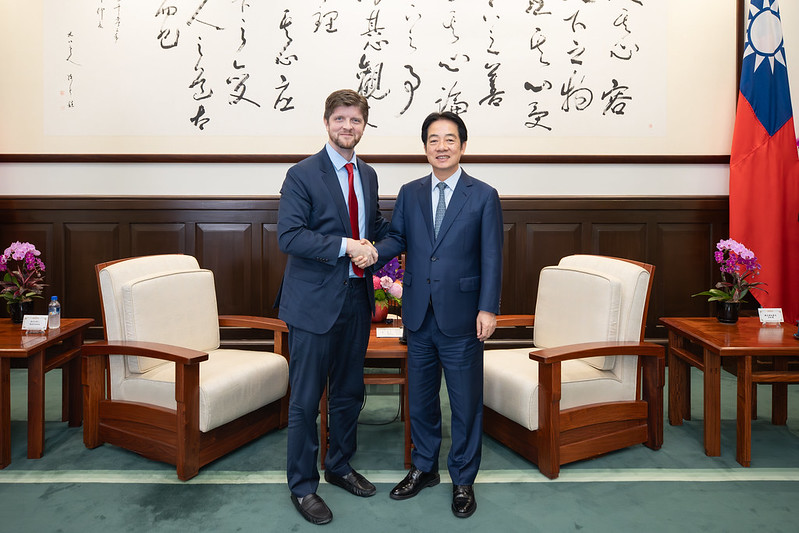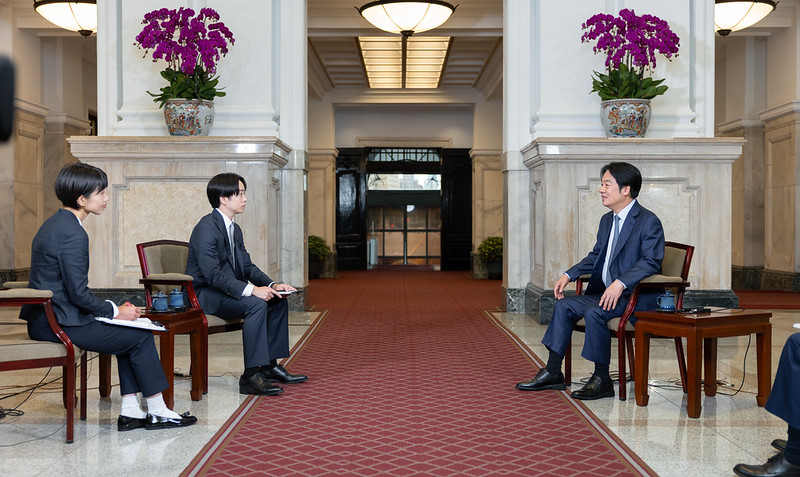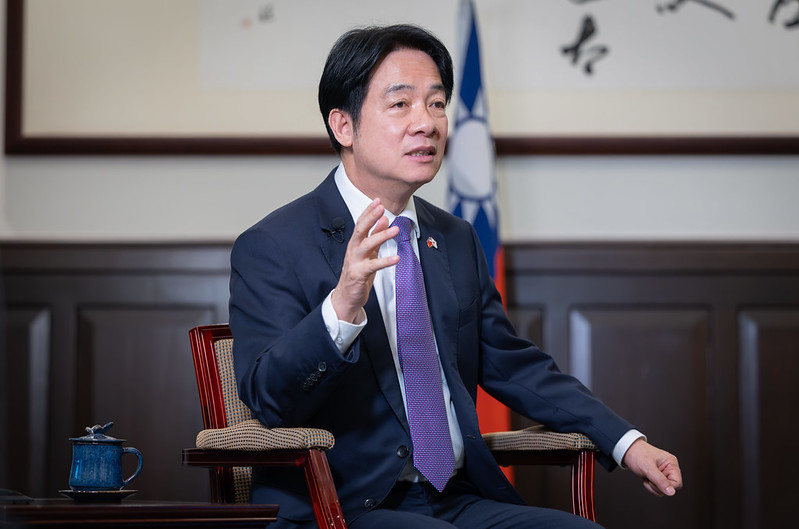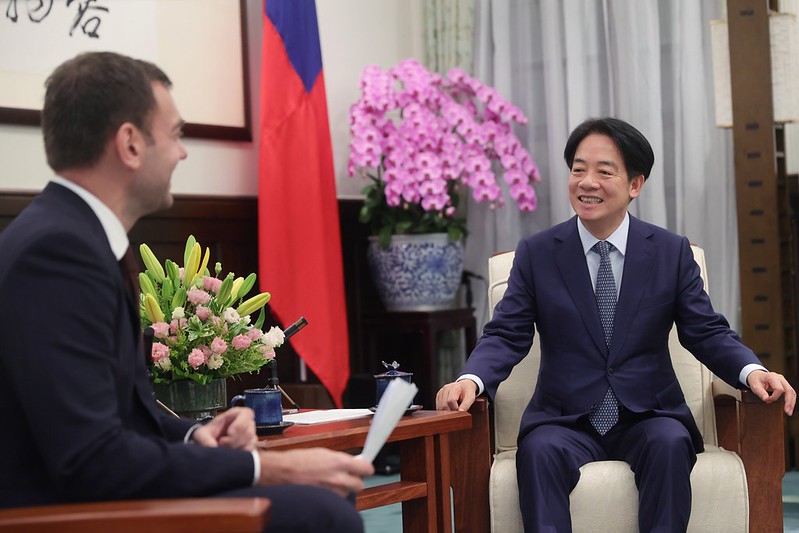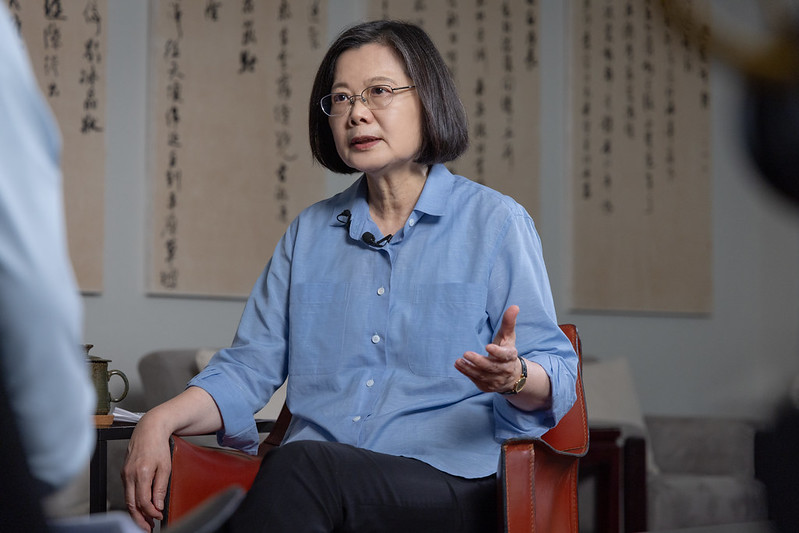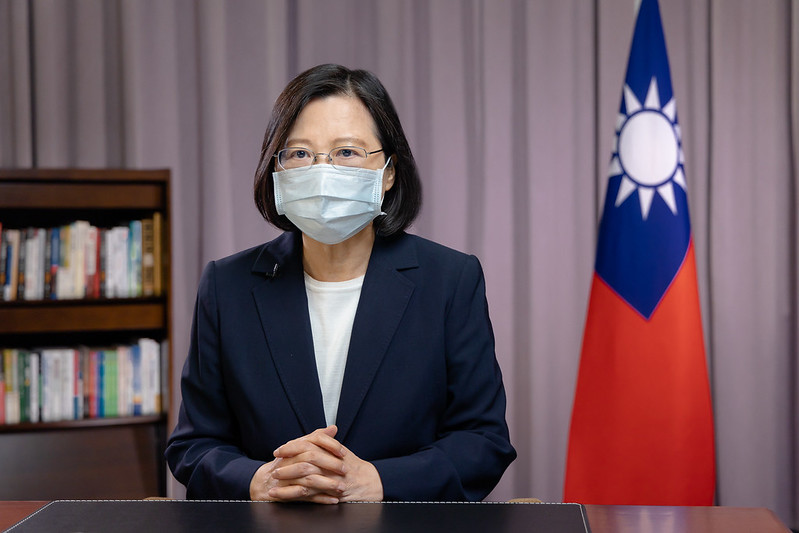News & activities
 News releases
News releases
On the evening of August 4, President Tsai Ing-wen delivered recorded remarks on the live-fire military exercises China is conducting in areas around Taiwan.
A translation of the president's remarks follows:
My fellow citizens:
Good evening.
Today, China initiated live-fire military exercises in areas around Taiwan. This type of continued, deliberately heightened military threat, especially the dangerous launch of missiles into some of the busiest transportation corridors in the world, is irresponsible, both to Taiwan and to the entire international community.
This not only undermines the status quo in the Taiwan Strait and encroaches upon our nation's sovereignty. It also creates high tensions in the Indo-Pacific region, as part of which air and maritime transportation safety, as well as the normal functioning of international trade, are all coming under unprecedented threat. We solemnly call upon China to act with reason and exercise restraint.
I want to emphasize that we will neither escalate conflict nor instigate disputes. But we will resolutely defend our nation's sovereignty and security as a bulwark of democracy and freedom.
As we speak, our nation's armed forces are already heightening their readiness, and are closely following in real time all military developments in surrounding areas. We are also in close contact with our allies, working together to halt further escalation of the regional security situation.
Our national security agencies are monitoring the situation, and are communicating closely with other government agencies in order to ensure that flight and shipping routes remain safe and open, that our airports and seaports continue to function normally, and that our economy and financial markets remain stable. I want to ask my fellow citizens to rest assured that our government is responding with a steady hand.
I also want to say to the international community that democratic Taiwan has consistently been a responsible member of the international community. We will work to maintain the peaceful and stable status quo in the Taiwan Strait. We are calm and will not act in haste. We are rational and will not act to provoke. But we will absolutely not back down.
Here, I want to call upon the international community to support democratic Taiwan and come together to put a halt to these unilateral and irrational military actions. As we have in the past, Taiwan will work with those in the region and democratic partners around the world to uphold peace and stability in the Taiwan Strait and the Indo-Pacific region.
I also want to say to my fellow citizens that, over the next few days, China most likely will conduct intensive information warfare operations. These will include cyberattacks on Taiwan’s public and private sectors, as well as attempts to cause psychological unrest among our people through disinformation campaigns.
To address cyberattacks, I have instructed government agencies to be on heightened alert, and I call on private enterprises to step up their response measures. To address information warfare, especially information from Chinese sources, I ask all our friends from the media to be even more meticulous when fact checking and extra careful with attribution. I also ask my fellow citizens to remain alert.
I have directed all government agencies to provide correct information as soon as possible. Please take the information from our official government sources as accurate, and remember not to share unverified information.
Lastly, I want to thank the G7 countries and our many good friends around the world for supporting peace and stability in the Taiwan Strait and the region, and for reiterating their firm commitment to maintaining peace and stability in the Taiwan Strait.
I want to emphasize again that peace in the Taiwan Strait is the shared responsibility of everyone in the region. We are doing our utmost to uphold the cross-strait status quo, and we remain open to constructive dialogue.
Taiwan does not give in to challenges, and it never will. I hope that everyone in Taiwan comes together, and that all political parties stand united to jointly defend our nation's territory, our sovereignty, and our democracy. Thank you.
